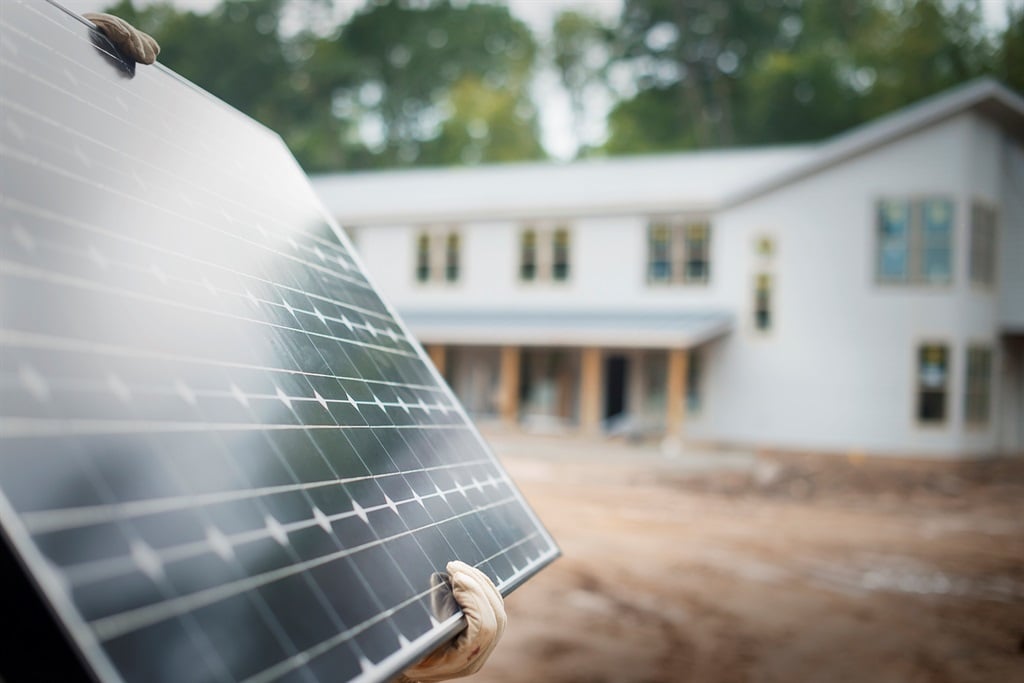
Solar PV users could pay over R900 per month for Eskom's grid-tied electricity per month, based on the 2020/21 proposal from the power utility. But Eskom says it is not trying to disincentivise people from opting for solar PV.
Eskom intends to submit a new tariff proposal to the National Energy Regulator of South Africa (Nersa) in August 2022 – it will apply from 1 April 2023 and 31 March 2024. It will be based on the principles of the 2020 plan, on which Nersa did not make a decision.
Based on calculations from the 2020/21 proposal, solar PV could pay as much as R938 per month for grid-tied electricity when based on the new tariff structure. Eskom did not confirm this with Fin24.
DA MP Kevin Mileham criticised Eskom for punishing homeowners and businesses seeking to install solar power systems. "This is regressive and negates every claim that the government has said about opening up the grid to independent power producers," he said.
But Eskom's reasoning to change the tariff structure is for it to be more cost-reflective of the services provided, such as energy charges, network costs (for using Eskom's infrastructure) and services charges (for the cost of administration).
This new tariff structure would fully account for the variable costs (such as energy charges) and the fixed costs (related to the network and generation capacity) and will account for the size of the customer – as the cost of administration is based on the different levels of services provided, Eskom explained.
The change in tariff structure coincides with the overall unbundling process of the utility into generation, transmission and distribution entities. Eskom said:
Asked about whether Eskom is disincentivising households from opting for solar panels – and reducing their reliance on the grid – the power utility said that this was not the case. "The intent of the fixed cost for an Eskom connection is not to disincentive the use of solar power at all. In order to ensure adequate recovery of costs, there needs to be an evolution in the thinking of how fixed costs can be recovered in tariffs," Eskom said.
Customers need to realise the value of being grid-connected and this change ensures they will pay a "fair, unsubsidised contribution" for the use of the grid and the system. The grid and system provide backup for solar PV users and can be used as a battery.
Moreover, Eskom intends to credit customers for the energy they feed to the grid. Such an arrangement is in place with its commercial customers. Eskom wants to put this in place for residential customers too, but it needs to be approved by the regulator.
"... There is no intent to introduce any fixed charges for the residential subsidised tariff Homelight and Eskom is intending to also introduce a time-of-use residential tariffs, which if used together with PV and batteries will enable the customer to significantly save," the power utility added.
Following the normal public consultation process, the regulator will then make a decision on what electricity tariffs to approve.

